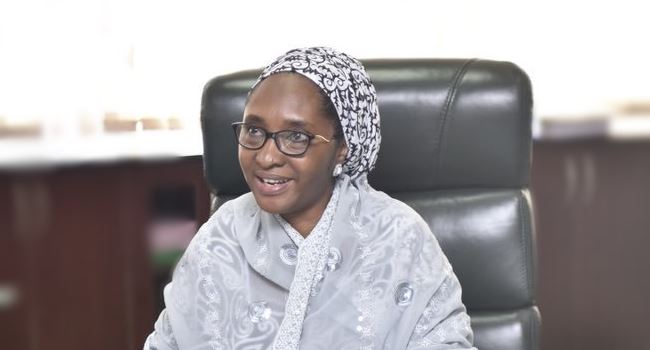Business
All you want to know about global projections shaping Nigeria’s 2020-2022 MTEF plan

Reviewing the 2020-2022 Medium-Term Expenditure Framework, as presented by the Minister of Finance, Budget and National Planning, Zainab Shamsuna Ahmed, a couple of global predictions by the minister are worth appraising.
It is essential, however, to state that whether these projections would materialize is grossly a function of time.
Aside the minister’s attempt to establish that global economic recovery is projected to grow from 3.2% envisaged for 2019 to 3.5% in 2020, here are other predictions that court attention to look out for in about 27 months from now;
- Sub-Saharan Africa is projected to continue to grow rising from 3.4% in 2019 to 3.6% 2020.
- The global economic outlook is being revised downwards every quarter since last year due to factors including the trade tensions between the US and China; imposition of new rounds of sanctions on Iran with attendant implications for volatility in commodity prices; BREXIT; and tension in the Korean Peninsula.
- Growth in advanced economies is expected to further decline from 2.2% in 2018 to 1.9% in 2019 and 1.7% in 2020
- In the Euro area, growth is projected to rebound from 1.3% projected for 2019 to 1.6% in 2020.
- The baseline projection of about 1.3% and 1.4% growth in the United Kingdom in 2019 and 2020 respectively is surrounded by prolonged uncertainty about the Brexit outcome.
- Emerging Market and Developing Economies (EMDES) in Asia are expected to maintain their robust performance, growing at 4.5% in 2018 to 4.1% in 2019 and 4.7% 2020.
- Growth in China is expected to moderate while India’s growth is projected to surge. However, there is tepid recovery in other EMDES like Nigeria and Brazil.
- Inflation is rising in some economies but moderating in others. In response, the financial markets witnessed the rebalancing of portfolios from equities to fixed income securities, with some stock markets posting losses.
With so much expected to unfold in the span of two years, what then is Nigeria’s hope to survive the storm as a fragile economy country. According to the minister, as documented in her presentation, “with Nigeria’s (recent) joining (of) other African countries to sign the agreement establishing the African Continental Free Trade Area (AfCFTA), there could be tremendous opportunities for Nigeria in the medium term.”
However, the minister has further appended that “the AfCFTA could also create a nightmare situation for the country” if right policies and actions aren’t “implemented expeditiously to improve Nigeria’s economic competitiveness.”
Join the conversation
Support Ripples Nigeria, hold up solutions journalism
Balanced, fearless journalism driven by data comes at huge financial costs.
As a media platform, we hold leadership accountable and will not trade the right to press freedom and free speech for a piece of cake.
If you like what we do, and are ready to uphold solutions journalism, kindly donate to the Ripples Nigeria cause.
Your support would help to ensure that citizens and institutions continue to have free access to credible and reliable information for societal development.
























